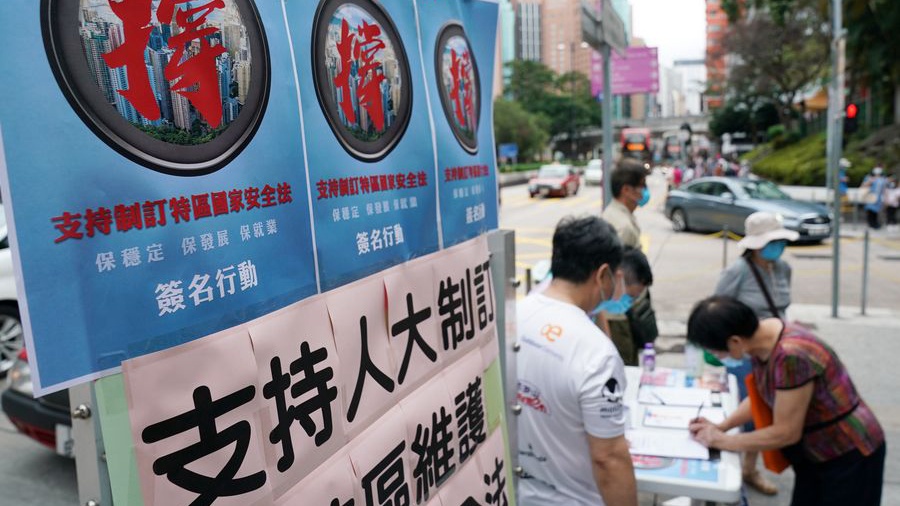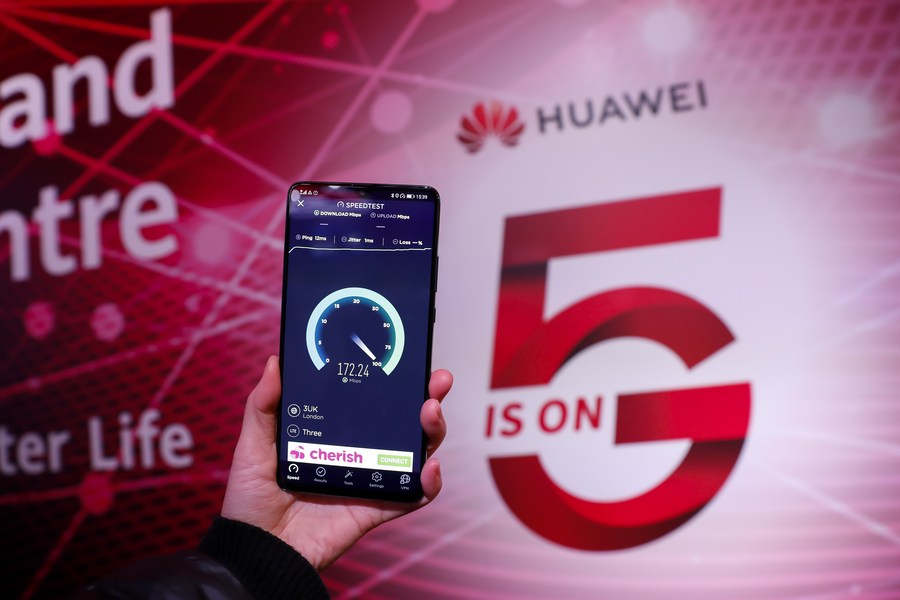The UK risks pursuing a "dead-end" policy if it bows to pressure to undo progress in building relations with Beijing, warned Chinese State Councilor and Foreign Minister Wang Yi on Tuesday.
Speaking to British Foreign Secretary Dominic Raab by telephone, Wang said the two sides "should strengthen communication and coordination, and shoulder their due international responsibilities and obligations," as China has always been an opportunity rather than a threat for the United Kingdom.
The exchange follows an increase in tensions between the two countries after the UK criticized the national security law in Hong Kong and banned China-based tech giant Huawei from its new 5G telecommunications network.

A street campaign in support of national security legislation for the Hong Kong, China, May 23, 2020. /Xinhua
A street campaign in support of national security legislation for the Hong Kong, China, May 23, 2020. /Xinhua
China-UK relations are at a crossroads and both sides should remain rational and mature, abide by basic norms of international relations, respect each others' core interests and major concerns, and maintain political foundations of bilateral relations, Wang said.
For his part, Raab said his country has always appreciated the importance of China.
At present, China-UK relations have encountered some challenges, but that is not the whole story, Raab noted, calling on both sides to stay in dialogue and communication so as to properly handle and resolve disputes.
Read more:
UK's ban on Huawei: A security threat or U.S. threat?
Wang Yi: We need to act in the spirit of multilateralism
Wang reiterated China's position that Hong Kong matters are an internal affair for China and said the new legislation was designed to create stability and prosperity in the city by closing long-standing loopholes in local law. Britain's interference in the situation was in violation of international norms, he said.
The formulation and implementation of China's national security legislation for Hong Kong aims to improve the rule of law in Hong Kong, and to ensure the steady and sustained development of "One Country, Two Systems," which is in full compliance with the Constitution and the Basic Law, he said.

File photo of Huawei 5G mobile phone testing speed in Huawei 5G Innovation and Experience Center in London, Britain. /Xinhua
File photo of Huawei 5G mobile phone testing speed in Huawei 5G Innovation and Experience Center in London, Britain. /Xinhua
Regarding the 5G issue, Wang criticized UK Prime Minister Boris Johnson's government for changing course on Huawei after initially promising that the company would be allowed to play a limited part in the 5G rollout. The UK "politicized business issues and discriminated against Chinese companies" by following calls from the U.S. to take a tougher position, he told Raab.